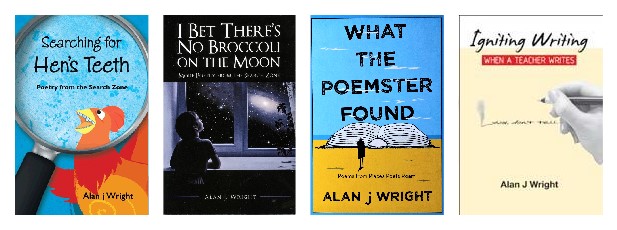As a poet, I am constantly looking for ideas and inspiration. So naturally, I was excited when I came across this poetry pearl of an idea when checking Twitter last evening.
Austin calls this method for composing poetry ‘Blackout Poetry.’ He uses newspaper pages to redact the original text with permanent markers to eliminate words not required, thus leaving only those words essential for creating the desired message. Austinencourages fellow poets to dive right in and try blacking out and then sharing the resultant poems on his web site.
This strategy works in a similar fashion to ‘found poems’ and ‘river poems’ in so much as it brings old pages back to life by using the words in an enterprising and creative way.
I can imagine Blackout poems working really well with the student writers I meet, as it allows them full control over the composition they are creating. It certainly supports vocabulary development. The writer is forced to read closely in order to make informed decisions regarding which words stay and which words get wiped out! The writer is challenged to make strategic decisions as the process unfolds. The blanking out of words using markers also holds appeal for students especially inexperienced writers. Mind you, even experienced writers find this scribbling appealing. -Very therapeutic actually.
Before presenting this idea to students, it is important to try it yourself. So I did! Instead of magazines, or newspapers, I chose pages from a book I am currently reading. I chose those passage I believed had poetic potential. I then grabbed two markers, one a fine line marker; the other a chunky broad tipped marker and settled in to the creative phase of the exercise. I found myself transformed into a Wipe Out Warrior!
Here is one of the Blackout poems I composed. What fun…


Comments
Post a Comment